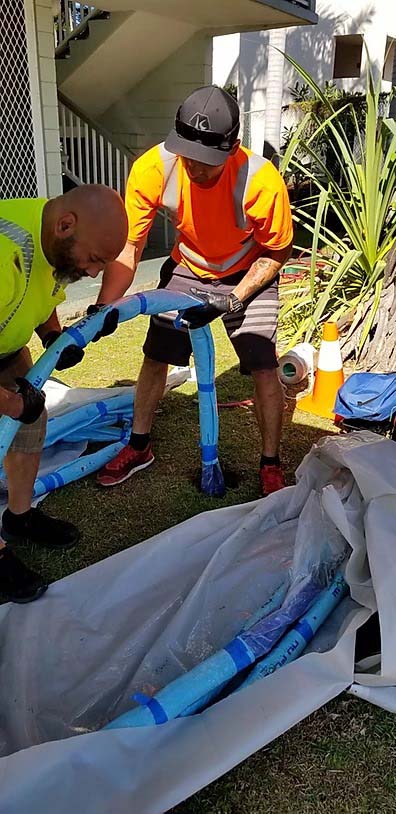Why Were Cast Iron Pipes Ideal?

There’s a reason why cast iron was the primary material used for sewer pipes – it offers distinct advantages that other types of metals and materials simply do not. But what really made cast iron the ideal back then? Also, how can trenchless pipe lining in Waimea, HI help make sure they still perform optimally? Nu Flow South has the answers.
Cast Iron Pipe Can Withstand High Pressure
One of the biggest advantages of having cast iron pipes is that they are able to withstand immense pressure. This feature is especially useful since pipes transport water to and from various places – the constant pressure exerted by the waterflow day in and day out is significant enough that any other material won’t be able to hold out for long. Luckily, damage due to water pressure is something that CIPP lining can address.
Resistance to Corrosion
Cast iron has a much slower corrosion rate compared to most metals, a fact that makes this particular pipe material ideal. Corrosion can be caused by a variety of factors, including chemicals present in the environment and soil, bacteria, as well the acidity of the water. Cast iron pipe resists corrosion because it has a different composition from other metals like steel. This means that it won’t rust or wear away over time as other metals do and the pipes can be maintained through cast iron pipe lining.
Ability to Withstand High Temperatures
Many pipe lining companies know that cast iron was an ideal pipe material because it can withstand heat. This is due to the fact that cast iron has a very high melting point, which allows it to retain its strength even at extremely high temperatures.
It is important that cast iron pipes are serviced by technicians who understand these pipes well. Nu Flow South Pacific specializes in a comprehensive range of services, such as cast iron and epoxy pipe lining, that can help keep pipes functional for many years to come.
Contact us for more information or to schedule an appointment.
Contact Nu Flow South Pacific
